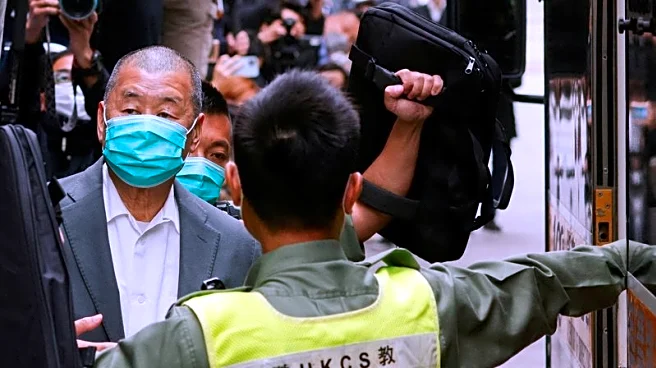Rapid Read • 7 min read
The United States and Ecuador have signed a bilateral agreement to enhance cooperation against transnational criminal networks. The agreement was formalized during the visit of U.S. Homeland Security Secretary Kristi Noem to Ecuador. It aims to facilitate the exchange of information on suspected criminal offenders and conduct risk assessments of cargo and travelers. Secretary Noem emphasized the importance of these efforts in improving security and ensuring lawful migration. This agreement is part of the broader strategy of President Trump's administration to strengthen regional cooperation in combating immigration and transnational criminal groups, including the Venezuelan gang Tren de Aragua, which has been designated as a foreign terrorist organization by the White House.
AD
The agreement between the U.S. and Ecuador is significant as it represents a strategic move to address the challenges posed by transnational criminal networks. These networks often exploit weaknesses in border security and immigration systems, leading to increased crime and illegal migration. By enhancing information sharing and risk assessment capabilities, the agreement aims to bolster security measures and prevent criminal activities. This collaboration could lead to more effective tracking and apprehension of criminals, thereby improving safety and security in both countries. Additionally, it reflects the U.S. administration's commitment to regional partnerships in addressing complex security issues.
Following the agreement with Ecuador, similar initiatives are expected to be pursued with other countries in the region. Secretary Noem's recent agreement with Chile indicates a trend towards increased cooperation with Latin American nations. These agreements may lead to the implementation of advanced biometric data sharing, such as fingerprints and iris scans, to identify and prevent potentially dangerous individuals from traveling to the U.S. The ongoing efforts are likely to result in further diplomatic engagements and security collaborations aimed at curbing transnational crime.
AD
More Stories You Might Enjoy












